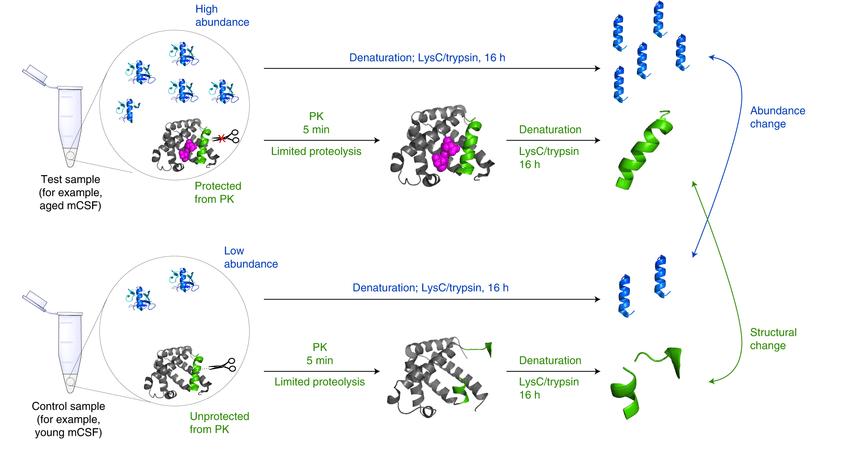Protein-Metabolite Interaction Analysis Service
It is well known that proteins have essential regulatory functions in cells' life activities, some of which are realized through interactions with small-molecule metabolites. Therefore, analyzing interactions between protein and metabolite is very essential for both protein and metabolite studies. With years of experience in proteomics research, Creative Proteomics can provide professional protein-metabolite interaction analysis services to facilitate your protein research.
What is Protein-Metabolite Interaction
Metabolites, small molecules produced or involved in cellular chemical reactions, are central to metabolism, which sustains life by converting nutrients into energy and cellular building blocks. PMI refers to specific interactions between proteins and these metabolites within biological systems. These interactions are vital for regulating cellular processes and maintaining homeostasis. PMIs play key roles in cell signaling, metabolism, and overall organism function. It is speculated that due to the large number of proteins and metabolites in the cell, there may be millions of pairs of PMIs associated with functions. So PMI is no less complex than protein-protein interaction (PPI) networks. The study of PMIs is advancing rapidly, thanks to the development of advanced analytical techniques, and holds great promise for understanding cell biology and its relevance to health and disease.
The Principle of Protein-Metabolite Interaction Analysis
PMI research primarily employs LiP-MS, which combines limited proteolysis (LiP) and mass spectrometry (MS). In a physiological environment, broad-spectrum proteases can cleave proteins at specific sites. However, PMI can enhance protein stability, rendering them resistant to hydrolysis. Comparing MS signal intensity changes in digested peptides from samples subjected to different treatments allows the analysis of protein-metabolite interactions and the screening of proteins interacting with metabolites. This technique holds great promise for advancing our understanding of cell biology and its implications for health and disease.

Fig 1. Schematic of LiP-MS (Shuken S, et al., 2022)
Our Service
PMI analysis has diverse applications in biology, pharmacology, clinical research, and various interdisciplinary fields. It enables researchers to gain a deeper understanding of the molecular mechanisms that underlie health, disease, and the effects of drugs and environmental factors on biological systems. Creative Proteomics provides considerate and high-quality protein-metabolite interaction analysis services. In addition, we also offer protein-protein interaction analysis service, protein-DNA interaction analysis service and protein-RNA interaction analysis service.

Fig. 2. Protein-metabolite interaction workflow
Applications of Protein-Metabolite Interaction
The interaction between protein and metabolite can regulate metabolic enzymes, transcription factors, transporter proteins and membrane receptors, so it can influence biochemical processes, signaling pathways, etc. Hence, PMI has a wide range of applications in various areas of biology and biomedicine, such as drug target identification and validation, drug mechanism of action, disease marker discovery, metabolite profiling, personalized medicine, biological pathway elucidation, functional annotation of proteins, metabolic engineering, toxicology and environmental science, plant biology and agriculture, microbiome research, nutritional sciences and so on.
Advantages of Protein-Metabolite Interaction
- Simple, efficient and highly sensitive.
- Direct analysis of complex biological samples.
- No need to purify or enrich proteins.
- Can analyze the interaction between proteins and other small molecules.
Creative Proteomics provides comprehensive and high-quality protein-metabolite Interaction analysis services. If you are interested in protein-metabolite interaction analysis, please contact us. We look forward to discussing the specifics of how we can assist you in your research pursuits.
References
- Shuken S.; et al. Limited Proteolysis-Mass Spectrometry Reveals Aging-Associated Changes in Cerebrospinal Fluid Protein Abundances and Structures. Nature Aging. 2022, 2: 1-10
- Holfeld A.; et al. Limited Proteolysis-Mass Spectrometry to Identify Metabolite-Protein Interactions. Methods Mol Biol. 2023, 2554: 69-89

